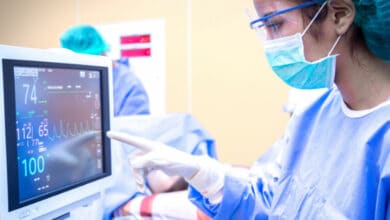By: Brian Chang
If you are interested in applying to residency in a surgical subspecialty, one of the most important things you can do during medical school is find great mentors. Everyone develops interest in their chosen field at a different time, but whenever you feel that you are interested in applying into a particular field, it is important to try to find a few mentors as soon as you can.
Your mentors should be able to answer any of your questions and provide guidance throughout medical school and through the residency application process. Additionally, they may provide guidance for you to learn and develop your skills within the chosen field as well as provide opportunities for research.
Read More: Navigating Research in Medical School
When picking mentors, it is tempting to look at the faculty member’s clinical interest, research interest, position within the division or reputation within the field’s community. While all those characteristics are certainly important, the most important characteristic is the personality fit. Will this person truly be interested in my wellbeing and interests? Will I be able to talk openly with this person without fear of being judged or evaluated? Will this person continue to be a mentor regardless of where I end up for residency?
For these reasons, sometimes reaching out to a more junior faculty member can be better. The junior faculty members are oftentimes closer to medical school and the application process and may be easier to relate to. They also may be more interested in finding students willing to help them with their research, and they often are not as involved with running a division or department and can therefore get to know you on a more personal level. Because letters of recommendation and advocacy calls are so important, it really helps to have someone who truly knows who you are as a person and can advocate for you on your behalf.
Read More: Patient Pet Peeves (and how to avoid them as an MS3)
While having the more personal mentorships can be incredibly beneficial, forming mentorships with the more senior members of the division—the chair, assistant chair, program director—is also really important. In many surgical subspecialties, the community is small and the program leaders know each other well. To have your program leaders speak positively about you can also help incredibly.
Finding the right mentors really makes medical school and applying for residencies a lot easier, but it is important to know that really any mentor can help you and that mentorship is really what you make of it. Once you are pretty sure of what field you are interested in, it helps to reach out to the residents and see if you can work with some of them on rotations. The residents can be an invaluable resource in helping you form connections and bridging the gap between the faculty. In general, as with anything, try to be happy, friendly, energetic, and fun to work with, while also staying true to yourself.



